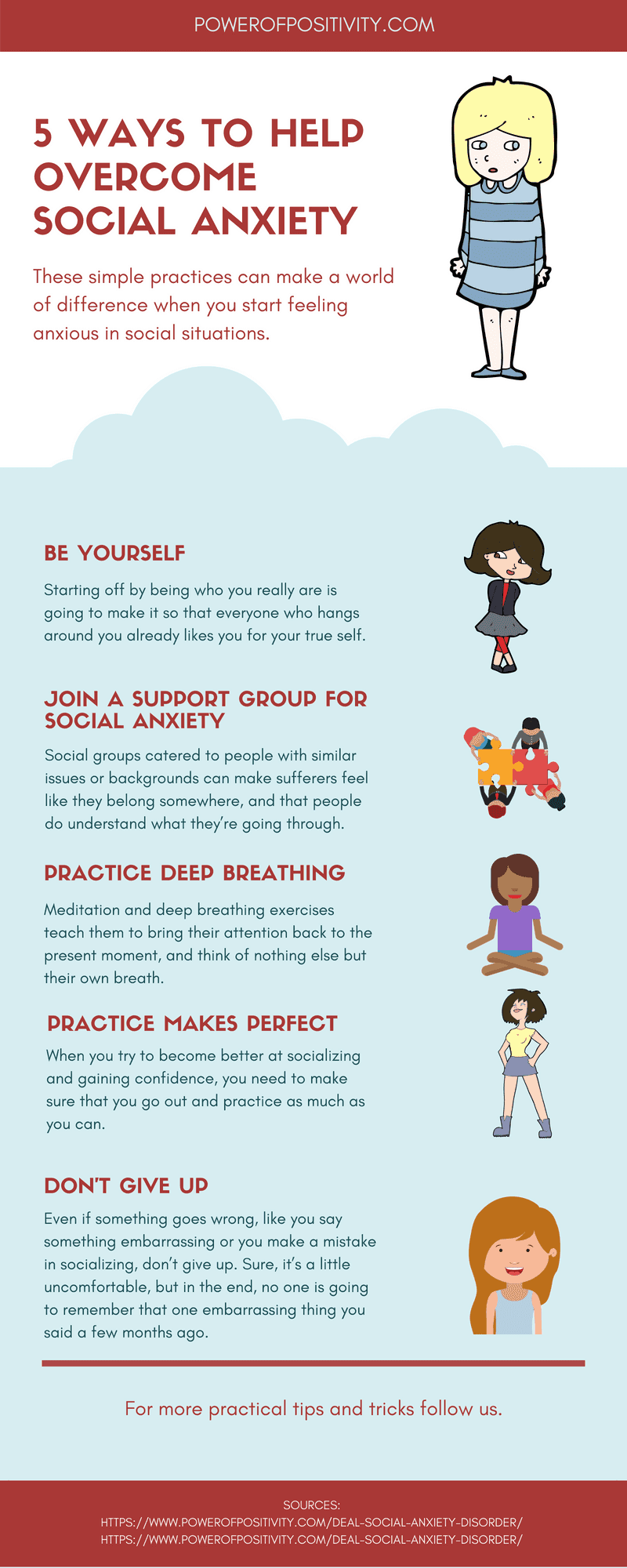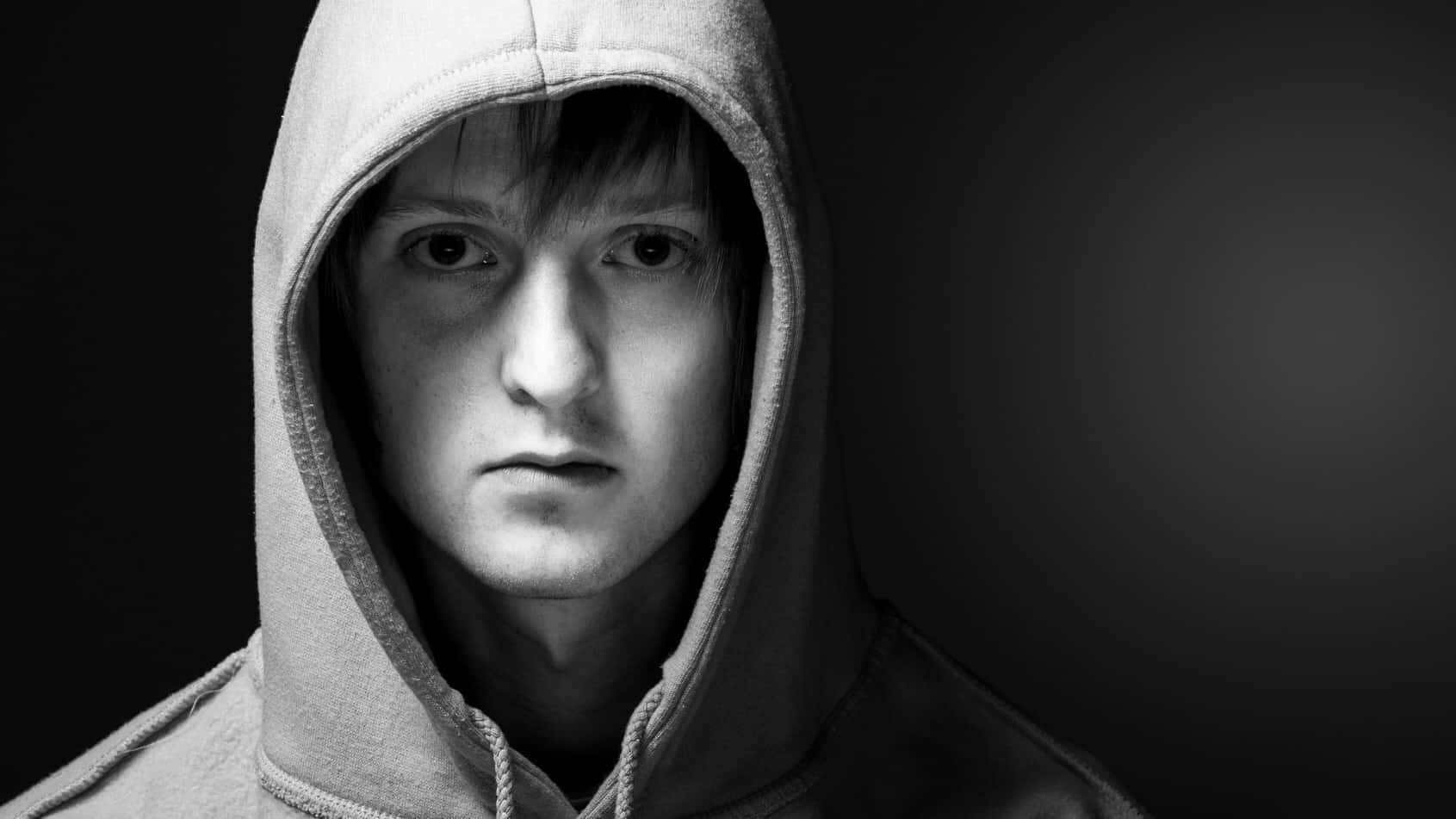For those that suffer from social anxiety, everyday life can feel like a neverending nightmare. The smallest tasks, from going grocery shopping to calling the doctor, can seem totally overwhelming and terrifying. In our technological world today where we do more and more behind computer screens, it doesn’t come as much of a surprise that social anxiety is on the rise. However, living with the disorder every day can seem utterly exhausting, when no relief is in sight. Social anxiety usually begins with one awkward encounter and escalates from there. People with social anxiety have an extreme fear of interacting with others in certain environments, and this can cause the sufferer to become reclusive and withdrawn.
5 Things Only People With Social Anxiety Will Understand
Many people, unfortunately, have no idea what people go through who have social anxiety, so hopefully, this list will shed some light on the disorder. If you have social anxiety, you will likely relate to the following scenarios.
1. Being afraid to speak up in a room full of people.
People with social anxiety don’t like big crowds, but even speaking in a room full of five or more people can seem overwhelming. Basically, those with this mental illness don’t like attention being drawn to themselves, and they avoid it at all costs. However, in a classroom or work environment, staying to yourself isn’t always an option. If you have to give a presentation, for example, you know the feeling of dread you get from simply hearing the assignment. You begin to plot out the worst-case scenario, even if you plan on starting the assignment weeks ahead of time.

Only people with social anxiety can understand the sheer terror, sweaty palms, and increasing heartbeat that come from speaking in public.
2. Going to parties(and not really wanting to).
For those with social anxiety, going to a social event isn’t exactly paradise. We have to plan out what we’ll say to people, what we’ll wear, how to keep the conversation going, how to politely say goodbye(even if it’s hours before the party ends), and even how to get there. We have to plan out every detail (or at least try) in order to feel somewhat okay about going. Not to mention, we have to figure out how to tune out those annoying anxious voices in our heads while we talk to people, so we at least seem interested.
It takes a lot of energy for those with social anxiety to go to a party, even a small one. Just showing up at all is a huge step in the minds of a socially anxious person.
3. Being misunderstood by pretty much everyone.
Socially anxious people didn’t choose to have a disorder. They might try to overcome it through various techniques, but it may not ever go away completely. According to the Anxiety and Depression Association of America, social anxiety disorder affects 6.8% of the U.S. population or 15 million people. These 15 million people live in varying degrees of discomfort with social situations, and try their best to live normal lives. Not everyone can tell if someone feels socially anxious, but the sufferer can definitely feel it.
The mental health issue doesn’t just stop if we tell it to; it takes time and effort to learn how to overcome it, or at best, learn to live with it comfortably. Only those with social anxiety can understand the frustration that comes with people saying “just get over it,” because if we could, we certainly would.
4. Awkwardness in conversations.
Now, this doesn’t mean that people with social anxiety can’t carry on a conversation; it just means that they have a harder time doing so. People with social anxiety tend to be introverted, so they naturally want to keep to themselves more. Making conversation just doesn’t come easily for those with social anxiety, and the slightest slip-up in conversation can make them embarrassed.
Only those with social anxiety can understand the feelings of shame and inadequacy that come with awkward social interactions.
5. The terrible physical symptoms.
Many people don’t know that social anxiety comes with a slew of physical symptoms as well, and these just add to the discomfort of the disorder. People with social anxiety don’t like the spotlight being on them.. So they desperately want to hide these physical symptoms to avoid any attention. People who struggle with this can suffer from blushing, excessive sweating, pounding heart, weak muscles, confusion, upset stomach, vomiting, diarrhea, and even fainting, to name a few.
Please show them love and support if you know someone with this condition. Also, please try to understand how they feel. You don’t have to have a disorder to empathize with others who suffer from it.

Eight Primary Causes Of Social Anxiety
Social anxiety, or social anxiety disorder as it’s called, is having a consuming fear of being in social situations. The person struggling with a social anxiety disorder has a fear that’s irrelevant to the situation. Situations that cause this outcome can include:
- Meeting people
- Talking in a group
- Starting a conversation
- Talking to an authority figure
- Eating or drinking in public
- Being seen in public
- Using public bathrooms
- Going to school
- Any public performance
8 causes social anxiety disorder
This mental illness causes the individual to dread future events. They will often worry weeks in advance about the event and feel physically sick on the day of the event.
1 – Genetics
Genes can play a part in a person’s struggle with this mental illness. They influence the probability of someone ending up with social anxiety disorder. There are higher rates of social anxiety disorder in families with relatives who struggle with social anxiety disorders than families whose relatives don’t struggle with a social anxiety disorder.
2 – Stressful social situations
If you were bullied, experienced abuse at home, or public embarrassment as a child, you are more likely to develop a social anxiety disorder. Sexual abuse experienced when you were young is a common cause of a social anxiety disorder among adults.
3 – Parenting
If one or both of your parents modeled fear of being in social situations and were overprotective of you, you’re more likely to develop a social anxiety disorder. Parents who are overprotective exhibit behaviors such as
- Controlling-Won’t allow the child to make their own decisions
- Restrictive-Strict rules
- Anxious-Assuming the worst will happen
- Worried-Constantly thinking about all the bad things that will happen
- Fearful of kids getting hurt or sick
- See normal things as dangerous-playing outside, taking part in sports, etc.
4 – Brain structure
Different parts of your brain get activated when you’re in a threatening situation. People with this disorder have hyperactive reactions to settings that cause an imbalance in their brain neurotransmitters. This results in a deficiency of serotonin, dopamine, glutamate, and oxytocin.
5 – Social media
Technology meant to help you stay connected can increase your social anxiety disorder risk. Today, there are fewer in-person interactions and more social media interactions using these platforms:
- Texting
- TikTok
- Video games
There is evidence that spending too much time on online communication can cause people to feel uncomfortable and anxious about in-person interactions.
6 – Physical events
Some physical events can trigger anxiety. You may experience shortness of breath or a racing heartbeat when you’re in certain physical situations. Physical events that may trigger social anxiety include the following:
- Interacting with strangers in an unfamiliar setting
- Large crowds
- Moving away from home
- Job interviews where you worry about being judged
- Feeling disapproved by someone
7 – Your temperament
Some people have timid, shy personalities. These individuals are more prone to feeling socially anxious. Facing new situations can be very difficult, causing them to withdraw from social situations.
8 – Having an appearance that draws attention to yourself
Certain physical features or illnesses make you self-conscious and anxious to be in social settings. Things such as
- Facial disfigurement
- Stuttering
- Parkinson’s disease
- Being extremely tall or short



















